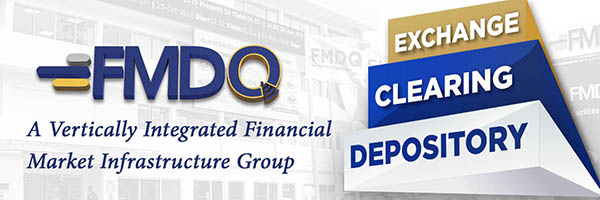In line with the Terms of Reference of the Infrastructure Finance Sub-Committee of the FMDQ Debt Capital Markets Development (“DCMD”) Project, to facilitate the uptake of capital markets products as a means of financing infrastructure, a webinar was recently facilitated to create a platform for expert discussions on infrastructure development in Nigeria leveraging the Nigerian debt capital markets (“DCM”).
The forum which targeted stakeholders and players in the construction, mines & steel, oil & gas, health, transportation, education and information technology sectors among others, was geared towards critically discussing how domestic and foreign infrastructure financing can be raised through different financing models to create an enabling environment for private investments in Infrastructure.
The session discussed various impacting topics, which include but are not limited to; the opportunities and challenges of benchmarking the Nigerian debt infrastructure market, identifying the scope of de-risking tools in enhancing bankability of infrastructure projects, and government incentives and legislation reforms to unlock infrastructure development in Nigeria.
Accordingly, the forum was intentional about having a rich, seasoned, and diverse crop of panelists to debate and contribute their various perspectives towards addressing the dominant issues raised as relevant for proper context across the value chain.
The speakers and panelists who spoke on various aspects of the focus, were; Mr. Bola Onadele. Koko, Chief Executive Officer, FMDQ Group, Mr. Bolaji Balogun, Chief Executive Officer, Chapel Hill Denham & Chair, Steering Committee, FMDQ DCMD Project and Professor Gbolahan Elias, SAN, Principal Partner, G.Elias & Co.
Others are Mr. Wale Shonibare, Energy Financial Solutions, Policy & Regulation, African Development Group, Mr. Daniel Mueller, Head, Origination & Structuring, Infrastructure Credit Guarantee Company Limited, Engr. Chidi K.C. Izuwah Snr., Director General, Infrastructure Concession Regulatory Commission and Dr. Farouk Aminu, Head, Investment Supervision Department, National Pension Commission, among others.
The session was moderated by Dr. Z. Wura Abiola, Managing Director, Management Transformation Limited & Co-Chair, FMDQ DCMD Project Infrastructure Finance Sub-Committee.
Whilst delivering the opening remarks, Mr. Bola Onadele. Koko, Chief Executive Officer, FMDQ Group, stated that, “infrastructure development is critical for economic growth, reduced poverty, job creation as well as improving the wellbeing of the citizenry and the DCM provides a key avenue through which infrastructural growth can be fostered to promote economic development”.
He further stated “at FMDQ, we recognise the increasing role of the inclusion of private capital in the Nigerian capital market which had hitherto been serviced only by public companies.
FMDQ Private Markets Limited was incorporated to enable private companies irrespective of size to access the market for funding and raise vital capital to expand operations and function as efficiently as possible within their various sectors”.
According to Mr. Bolaji Balogun, Chief Executive Officer, Chapel Hill Denham & Chair, Steering Committee, FMDQ DCMD Project, “it is absolutely clear that if any country wants to develop, the country develops primarily around the base of a deep and liquid domestic debt capital market and therefore, the role that FMDQ Group plays in this respect is pivotal”.
FMDQ serves as the DCMD Project Office, working closely with the stakeholders through the Governance Committees and its six (6) Sub-Committees, to drive the process of review and implementation of the initiatives required to transform the Nigerian DCM within the 10-year project implementation horizon of 2015 – 2025, aligned with the Securities and Exchange Commission’s Nigerian Capital Market Master Plan.
As part of its mandate to make the Nigerian financial markets “GOLD” – Globally Competitive, Operationally Excellent, Liquid and Diverse – FMDQ and the market stakeholders, through the DCMD Project, continue to champion initiatives aimed at making it easier for DCM stakeholders to access and raise capital, and foster development in the DCM, upgrading the market to its global counterpart.


